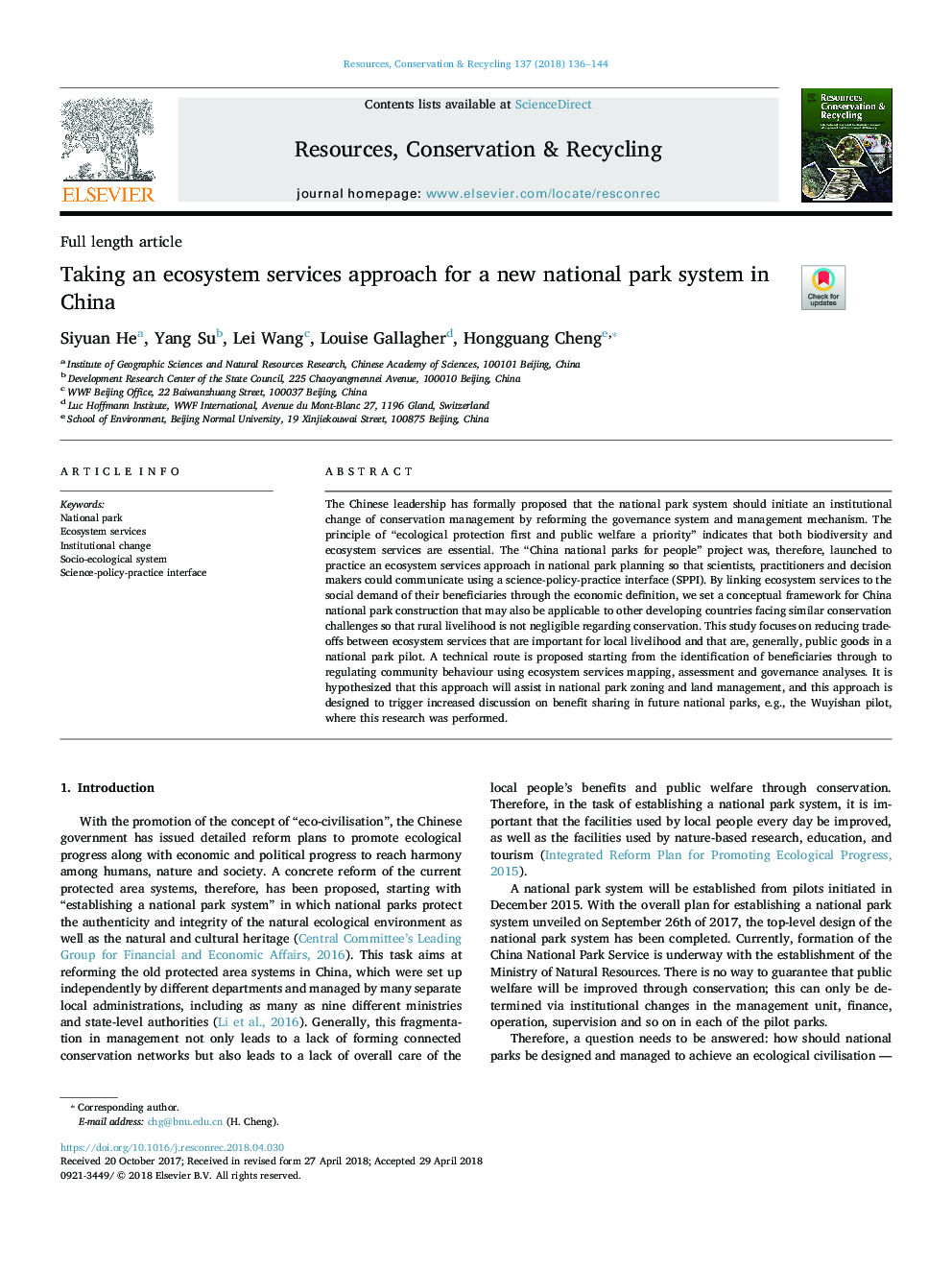| Article ID | Journal | Published Year | Pages | File Type |
|---|---|---|---|---|
| 7493881 | Resources, Conservation and Recycling | 2018 | 9 Pages |
Abstract
The Chinese leadership has formally proposed that the national park system should initiate an institutional change of conservation management by reforming the governance system and management mechanism. The principle of “ecological protection first and public welfare a priority” indicates that both biodiversity and ecosystem services are essential. The “China national parks for people” project was, therefore, launched to practice an ecosystem services approach in national park planning so that scientists, practitioners and decision makers could communicate using a science-policy-practice interface (SPPI). By linking ecosystem services to the social demand of their beneficiaries through the economic definition, we set a conceptual framework for China national park construction that may also be applicable to other developing countries facing similar conservation challenges so that rural livelihood is not negligible regarding conservation. This study focuses on reducing trade-offs between ecosystem services that are important for local livelihood and that are, generally, public goods in a national park pilot. A technical route is proposed starting from the identification of beneficiaries through to regulating community behaviour using ecosystem services mapping, assessment and governance analyses. It is hypothesized that this approach will assist in national park zoning and land management, and this approach is designed to trigger increased discussion on benefit sharing in future national parks, e.g., the Wuyishan pilot, where this research was performed.
Related Topics
Physical Sciences and Engineering
Energy
Renewable Energy, Sustainability and the Environment
Authors
Siyuan He, Yang Su, Lei Wang, Louise Gallagher, Hongguang Cheng,
